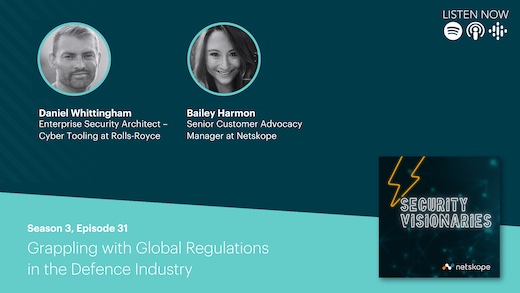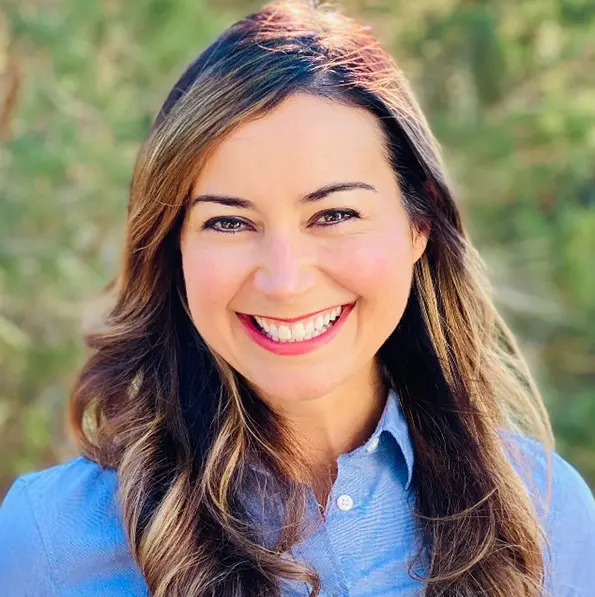An important part of the Netskope vision centers around the responsibility we have for supporting our wider communities. This is apparent in the way that our technology helps the global security community protect against the ever evolving threat landscape. But we believe it’s also incredibly important that we go beyond technology, and harness the power of our people and other resources to do good.
With this in mind, we recently introduced Netskope for Good; a program dedicated to giving back to our global team’s communities through our time, talent and resources, including two annual dedicated volunteer days and annual giving drives. I recently had an opportunity to sit down with our CEO Sanjay Beri, to understand why he believes this program is so important to our vision at Netskope. I wanted to understand what the program meant to him personally and the impact he believes programs like this can have on company culture and stakeholder engagement.
Here is what I learned when I interviewed him:
Jennica Sims: What does “Netskope for Good” mean to you?
Sanjay Beri: When you build a company, you build it for a lot of reasons; whether it’s because you’re passionate about the industry and want to make a big impact; or maybe you love building and being an entrepreneur; or you get a thrill out of bringing a great team together to be successful. For me, these are all true, but I also built Netskope because I believe in my heart that what we’re doing can have a broader, positive impact on the world.
I am determined that this goal sits at the core of what we do; defending against what is now the most prolific criminal activity in the world. To highlight an example, I was recently speaking with a hospital and they couldn’t operate on their patients because one of their suppliers was under a ransomware attack. The core concept of what we do is to defend against the criminals and attackers who (in this case) take down life saving hospitals, steal data, and victimize the elderly. The core concept of Netskope can be boiled down to defending those who positively contribute to society, against those who are doing something nefarious.
Netskope for Good, as a program, is about enhancing our central mission to consciously apply our resources, technology, and talent for specifically identified good causes. As a recent example, this can be seen with the work we’re doing with Orange, supporting Tenaka to restore coral reefs in Malaysia. And you see it with the efforts our teams make to donate technology or time in our broader industry and communities—something we systematically support. So I think of Netskope for Good in multiple ways. It’s about our mission, but it’s also about our talents, time, technology, and our wider communities.
JS: What excites you most about giving back, here at Netskope?
SB: I am particularly keen on the idea of giving time to good causes because time is probably everyone’s most precious resource. It’s important to me that we give employees a vehicle to give their time. We organize it, we encourage them to engage with it, and we give our corporate resources in support too—for example amplifying a project on social media to increase visibility of the cause.
I also get particularly excited about the activity among our team to help build pathways for people into our industry. Our industry struggles with a shortage of people, and it’s something we can directly help—supporting those who want to enter the industry. Some Netskopers teach classes and others sponsor an intern, some mentor, and others give a lot of time to community groups that are working to improve diversity and representation in tech. Those types of things get me very excited and are all paramount to our Netskope for Good program.
JS: Why do you feel like philanthropy programs like Netskope for Good are important to company culture?
SB: Part of the culture of Netskope—actually one of our core tenets—is giving back. It’s not about pushing anybody to do it, it’s about making it easy and supporting them if they want to do it. And I think the more you get a reputation for supporting it, the more you attract and recruit people who find that appealing. It becomes an important part of the culture, when the team here can say; “Okay, Netskope supports me beyond my professional goals and aspirations, into other aspects of my life. This allows me to develop beyond my career, and nurture my whole self by giving my time and resources. This company fits the missing puzzle piece of what I want to spend my time doing.”
JS: From your perspective, how do we balance our cultural desire to undertake philanthropic endeavors, with our fiduciary responsibility to our investors?
SB: As a for-profit company, we’re always trying to maximize our profits because frankly, that’s the duty of a company. Having said that, when we choose investors or board members, we tend to attract and vet for a cultural match. You are looking for a good fit, and people and organizations who also represent the cultural tenets that we discussed. Yes, they also have strong professional attributes that we seek, but we look for those who care about community and giving back. So we chose board members who fit the professional qualifications and culture we wanted. And as a result, when they look at the company, they also love that we’re focusing on how we apply our technology and enable our talent, for good.
We have support within our board to foster that type of culture and that’s important because otherwise things can be more difficult. That’s the balancing act we have to do. You could easily correlate that by enabling people to give their time and other resources to help others, they feel more fulfilled. And as a result, they also will love working here and bring their best self to work. The same thought process can be applied to our investors, and other stakeholders for that matter. This allows us more meaningful and broader engagement. This has allowed us a successful harmony between philanthropy and our fiduciary goals.
JS: For anyone else looking to run or start a philanthropy program like this, what advice would you offer them?
SB: As a leader, I believe it’s important to elevate and empower the person or people responsible for these programs. This is accomplished through executive support and investment: both from hiring the right expertise to run these programs, and giving these individuals the support to foster growth and change (where needed) across the organization. Having them as a regular attendee to our executive staff meetings, and giving them a regular speaking slot on our all company meetings, new hire trainings, board meetings, and other communication mediums, means you are able to engage employees across the organization. Because they have support from the board and the executive team, we can work toward making positive change and impact on every level of the business. I also think a business leader should make it known that they are personally bought into the mission, that it is built into the core of what the company is looking to achieve.
Lastly, in a very large company, you have to be careful to engage in every corner of the business. It’s an iterative process where a key stakeholder group—the employees—have a voice in what needs to be accomplished and can become contributors to understanding what’s materially relevant in the organization. I know we have had some amazing contributions from the wider team here, all of which have helped us shape the program and make it even better than I ever envisaged. Embrace people with diverse experiences, and value their input, because this will help strengthen your programs and efforts in every capacity.
JS: Thank you Sanjay for taking the time to chat!
If you’d like to learn more about the Netskope for Good program, please visit our dedicated webpage.




 Back
Back 





















 Read the blog
Read the blog